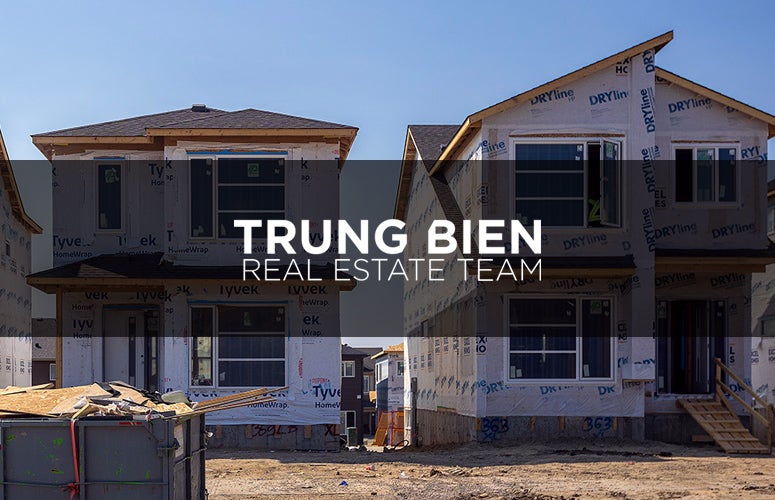Here’s why approving the housing strategy is a necessary step in the right direction for our city.
Following “three days of meaningful and passionate public participation and debate with more than 160 residents and groups generously sharing their experiences” 1 about Calgary’s housing crisis, Calgary City Council approved an amended version of Home is Here - the City’s Housing Strategy for 2023-2030.
Despite the contentious nature of certain action items put forward in the strategy, there is no doubt Calgary, like other major Canadian cities such as Vancouver or Toronto, is in the midst of a housing crisis, and city officials needed to take action.
But what does this action plan potentially mean for you? Your home? And our city?
Continue reading below to learn more about the action plan and why we, at Trung Bien Real Estate Team feel it’s an excellent first step forward in meeting the needs of our growing city.
1 https://newsroom.calgary.ca/city-council-approves-housing-strategy-with-amendments/?utm_campaign=later-linkinbio-ward9grams&utm_content=later-37896866&utm_medium=social&utm_source=linkin.bio
What is driving the housing crisis?
No matter how you cut it, Calgary just doesn’t have enough housing to accommodate our city’s rapidly growing population. That shortage is causing home prices to rise, making housing even more unaffordable for the average Calgarian.
To give you some statistical context on how serious the situation is, Tim Ward, Manager of Housing Solutions at the City of Calgary, stated that one in five Calgary households now can’t afford their housing, and one in ten Calgarians faces a real prospect of homelessness.
Rental rates are up by as much as 25% in the last year, and the average price of a home increased 29% over the previous four years.
Not only is housing becoming more unaffordable — but there are no signs that population growth will slow, either. In fact, it’s estimated that interprovincial and international migration rates will continue at their current rate until at least 2027!
Long story short, if we don’t act, a bad situation is only going to get worse.
What is the city doing about it?
In June 2022, the city created an affordable housing task force to investigate the housing crisis and generate a set of professional recommendations to guide the city’s response.
The task force put forward a total of 33 recommendations centred around what we summarize are two key ideas: to drastically increase the number of non-market (affordable) homes available in Calgary and to make it
easier to build new homes.2
To increase the amount of non-market affordable housing, the action plan suggests that every Local Area Plan be required to ensure a minimum of 15% of the total housing units are non-market. To build new homes, the task force called for what urban planners commonly call upzoning.
Upzoning is an alteration to a community’s zoning code to allow a new capacity for development. This practice, in turn, can increase supply and lower land costs.
2 Read the full list of recommendations here: https://www.calgary.ca/social-services/low-income/housing-strategy/recommendation-5.html
What is RCG zoning, and why do people care?
Though upzoning is only a single component of the city’s action plan, it is undoubtedly the most controversial. It has garnered the most public interest and debate — explicitly concerning the recommended R-CG and H-GO zoning.
What is RC-G and H-GO zoning?
Currently, most residential land in Calgary is classified as R1 zoning, which doesn’t allow landowners to build anything other than single detached homes or a legal basement suite without going through lengthy permit and development processes.
RC-G and H-GO are specific changes to Calgary’s residential zoning rules that simplify the process landowners must go through if they want to build single detached homes, duplexes, triplexes, backyard suites and rowhouses, opening many neighbourhoods up to more diverse forms of housing.
Understandably, this has many Calgary homeowners worried about their homes’ long-term values and the density in their neighbourhoods in the years to come.
If you’re worried about RC-G zoning, here are a few things to consider.
It’s important to point out that even though RC-G zoning will apply to all Calgary neighbourhoods, this doesn’t mean we will see higher-density projects popping up everywhere ad infinitum.
Fears voiced by many Calgary homeowners during the city council’s public consultation period that new zoning by-laws will drastically transform their neighbourhoods are understandable — but that doesn’t mean they’re totally legit.
Redevelopment, like all development, has to make economic sense. Generally, redevelopment occurs in neighbourhoods that are closer to the city center, where the street network is in a grid system, back lanes are present and where there is high demand for new homes.3
Also, consider that RC-G will considerably reduce permit wait times in neighbourhoods where we already see demand for this type of development. Zoning change allows us to build more houses in denser and densifying neighbourhoods while saving municipal tax dollars and resources consumed in permitting.
The reality is that, despite many single-family homeowners' concerns, redevelopment will be reasonably rare in communities where the majority of homes were built after 1970.4
3 https://www.calgary.ca/planning/projects/housing-choices.html
4 https://www.calgary.ca/planning/projects/housing-choices.html
Final Thoughts
While only one aspect of the city’s action plan, a part of what makes the proposed zoning changes feel so monumental is that our city itself is on the cusp of a historical shift.
Moves toward zoning regulations that are, in fact, commonplace in other major North American cities are harder to swallow here because Calgary has so long been heralded as a mecca for detached single-family homeownership.
It makes sense that folks who’ve lived here as long as I have feel resistant to new changes that might affect their neighbourhood. But the reality is that our city is changing and expanding rapidly, and if we are to accommodate that growth in the years to come adequately, we need to adjust.
Increasing housing affordability doesn't just make housing more accessible to those who need it most; it is critical to supporting new job creation, attracting a reliable and stable workforce and promoting the demographic diversity our city needs to remain economically vibrant and strong.
—
For an excellent summary and recap of the debates over the action plan, check out the Sprawlcast podcast here.


